European court rules teacher’s dismissal over gay blog violated free speech

The European Court of Human Rights rendered a judgement in a case where the Polish authorities fired a school teacher for writing on a blog for adult gay men featuring some sexually explicit content.
In February, in the case of P. v. Poland, the European Court of Human Rights (ECtHR) ruled that Poland violated Article 10 of the European Convention on Human Rights (freedom of expression). The case involved a secondary school teacher who was dismissed for writing an illustrated diary under a pseudonym on a public blog intended for adult gay men, which included some sexually explicit content.
The authorities considered that the applicant’s blog was an affront to the domestic social mores prevailing in Poland because it talked in explicit terms about sexuality. The applicant argued that the authorities had wrongly perceived his blogging activity as attesting to his lack of morals and posing a threat to the ethical education of his students, and that the sanction imposed on him was disproportionate in the circumstances of the case.
ILGA-Europe, together with KPH (Campaign Against Homophobia) and PSAL (the Polish Society of Anti-Discrimination Law) filed a third-party intervention in the case. The intervention informed the European Court about the situation of LGBTI people in Poland and highlighted the States’ obligations under international law and the European Convention on Human Rights (ECHR) framework. It emphasised the States’ obligation to provide effective measures to protect LGBTI persons’ rights to private life and freedom of expression, and to unmask possible discriminatory motives in case of interference with these rights.
While the European Court considered that there was no proof that the applicant’s sexual orientation had been the real reason for his dismissal, it still took into account the fact that the blog depicted same-sex relations when ruling on the breach of his freedom of expression. The Court relied on our intervention, which reminded that the Council of Europe’s Commissioner for Human Rights and the EU Fundamental Rights Agency reported that the prevailing social attitude towards LGBTI persons in Poland was negative. Owing to this, the Court considered important to refer to its previous ruling in the Macatė v Lithuania case, which found a violation of Article 10 as a result of restrictions on the distribution of a book that depicted a same-sex marriage.
The Court considered that the applicant’s dismissal was disproportionate, especially as he did not have any previous record of disciplinary sanctions. It concluded that the Polish authorities did not provide relevant and sufficient reasons for dismissing the applicant from his position as his blogging activity did not threaten the protection of morals of minors in a manner justifying the sanction imposed on him.
According to Annamaria Linczowska, Advocacy and Litigation Officer at Campaign Against Homophobia: “The case itself was a vivid example of discrimination against LGBT+ persons in Poland that time. Using a very serious mechanism – the teacher’s dismissal – the school and later, the commissions, interfered with the teachers’ freedom of speech, his right to be vocal in public about same-sex relationships. The case illustrates the obstacles and discrimination LGBT+ people face in the workplace and in education in Poland. Even though we share the ECtHR’s view regarding the country’s positive obligation to introduce legal tools to ensure respect of private life and freedom of expression, KPH believes that in this case it should have considered also the violation of articles 8 and 14 of the Convention by asserting the fact that applicant’s sexual orientation was a real reason for his dismissal”.
See KPH’s full statement here.
According to Marie-Hélène Ludwig, Senior Strategic Litigation Officer at ILGA-Europe: “We are glad that the Court took into account our joint third-party intervention describing the negative social attitude towards LGBTI persons prevailing in Poland to rule that the domestic authorities breached the applicant’s freedom of expression by dismissing him from his position.”
Our submission to the EC 2025 Rule of Law report
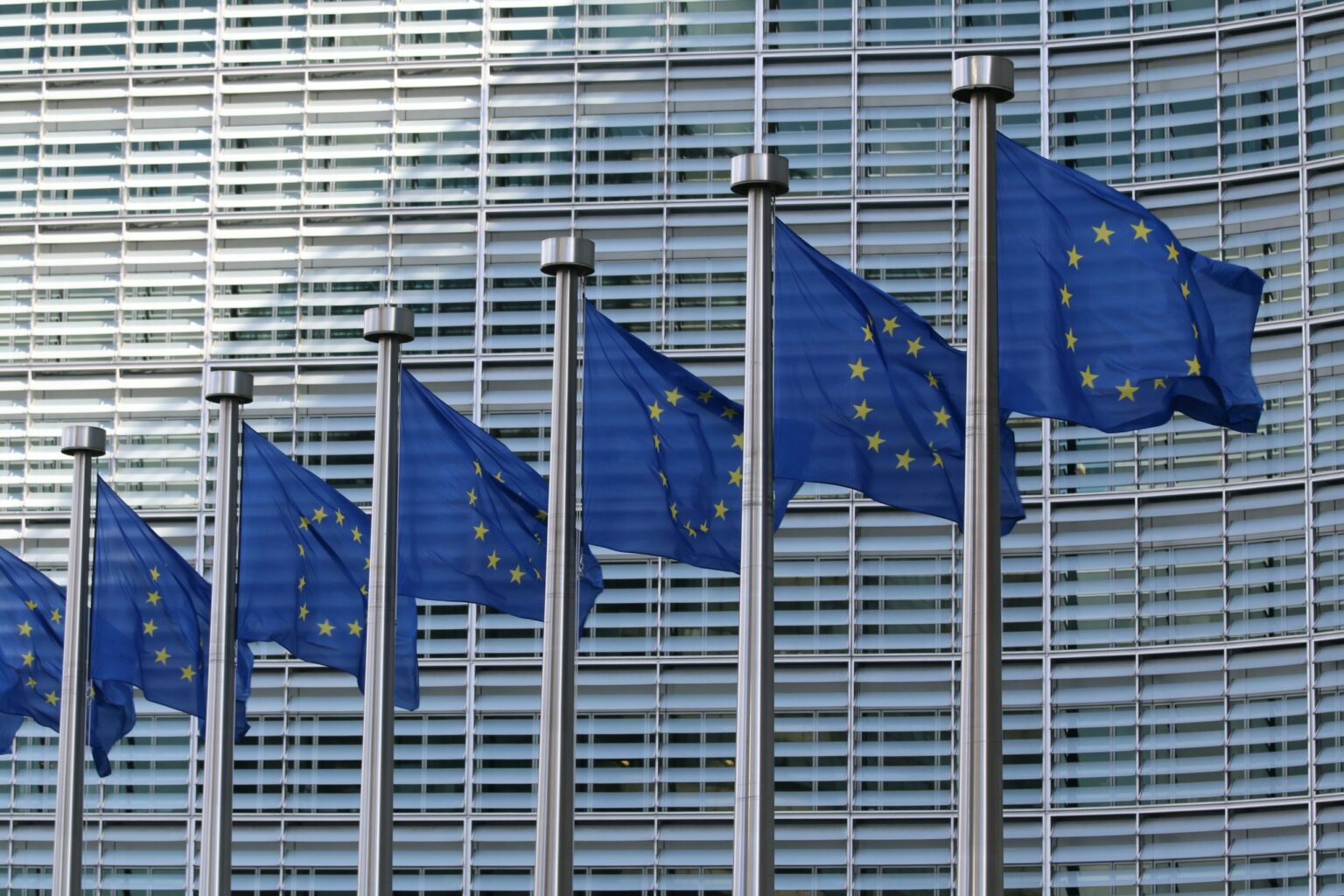
After a year of elections across the EU, threats to democracy and the rule of law are growing both in Europe and globally. Our submission highlights more clearly than ever the connection between these threats and the instrumentalisation of LGBTI people.
Disinformation, hate speech, and discriminatory political discourse have surged in many countries, directly impacting the lives of LGBTI people. At the same time, violence and restrictive legislation against LGBTI individuals are increasing, undermining the rule of law.
Top European Court holds hearing on Polish refusal to recognise same-sex marriage certificate
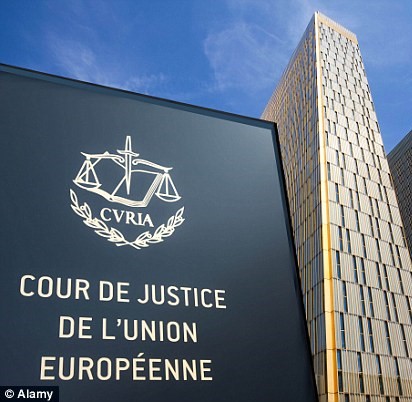
Case could establish critical precedent for the freedom of movement of same-sex couples within the EU
Yesterday, the Court of Justice of the European Union (CJEU) held a hearing in the case of Wojewoda Mazowiecki (C-713/23) concerning the recognition by Polish authorities of a same-sex marriage certificate obtained in another EU Member State.
The hearing follows Poland’s refusal to transcribe into the civil registry a certificate of same-sex marriage contracted in Germany between a Polish citizen and a Polish-German citizen. The couple currently resides in Poland.
The Court is asked whether this refusal conforms with the provisions of the Treaty on the Functioning of the European Union (TFEU) and of Directive 2004/38/EC, which establishes the rights of EU citizens to move and reside freely within the EU, read in conjunction with the European Charter of Fundamental Rights (ECHR), particularly the right to respect for private and family life and the prohibition of discrimination.
The Court is asked to follow the reasoning adopted in the recent judgment in the Mirin case, which confirmed that freedom of movement and other fundamental rights guaranteed under the Charter require authorities to transcribe changes to gender markers and forenames obtained in another EU Member State into their civil registries. By requiring Member States to amend entries in the birth certificates of EU citizens, Mirin ensures that the legal framework for registering and amending citizens’ data is consistent across EU Member States.
This would be a significant step towards the protection of same-sex couples across the EU, especially in light of recent European Court of Human Rights judgments in Przybyszewska and Others v. Poland which found the Polish state in violation of Article 8 (right to respect for private and family life) of the ECHR for failing to provide a specific legal framework recognising and protecting same-sex unions, and in Formela v. Poland which found that Poland breached the same provision for failing to recognise the relationships of two same-sex Polish couples married abroad.
According to Senior Strategic Litigation Officer with ILGA-Europe, Marie-Hélène Ludwig: “A positive ruling in this case would go beyond what the Court found in the Coman and Pancharevo cases and build on the Mirin judgment to recognise that transcription of marriage in civil registries is the only way to effectively ensure freedom of movement of same-sex couples in the EU, notably in countries still deprived of any legal framework recognising their union. This is especially important as marital status – just like one’s gender identity and sexual orientation – is a fundamental aspect of a person’s identity and personal status.”
According to attorneys Pawel Knut and Artur Kula from KMA Law Firm, the lawyers representing the applicants in the case: “The positive outcome of this case of may ensure that the transcription of the foreign marriage certificates of same-sex couples will be finally required from those Member States that still do not provide any form of legal protection for same-sex couples. We believe that this would also strengthen an effective protection for the rights of LGBT families around the EU”.
The Advocate General’s Opinion in this case will be rendered on 3 April 2025.ILGA-Europe is providing support to the applicants and their lawyers in this case.
The Frontline: LGBTI activism: Courage to seek new strategies
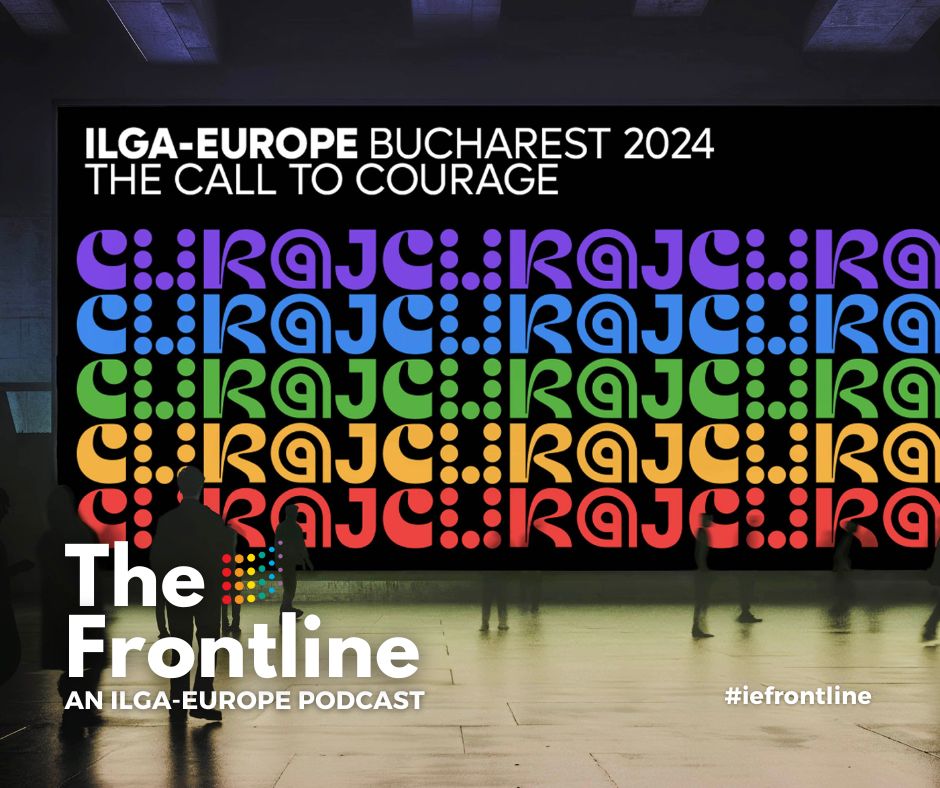
This summer in Bulgaria, as two new anti-LGBTI laws were fast-tracked in advance of forthcoming elections, a cross movement effort came together to try and stop it.
With rising levels of backlash and political scapegoating, how do LGBTI organisations relate to the greater struggle for democracy, freedom and equality? How do we avoid playing into political division in our quest for success? And in a world where there are no easy wins, what does that success look like?
For our panel on finding the courage to seek new strategies in current political contexts, ILGA-Europe’s Advocacy Director, Katrin Hugendubel is joined by Irena Moozova, Deputy Director General responsible for the International Dimension of Justice Policies, Rule of Law, and Equality in the European Commission, Béatrice Fresko-Rolfo, General Rapporteur for LGBTI rights at PACE in the Council of Europe, Denitsa Lyubenova, lawyer from the LGBTI organisation Deystvie in Bulgaria, and Magda Rakita from Fundacja Interakcja in Poland.
Joint statement: Welcoming European Court judgement on Poland’s failure to protect same-sex couples married abroad
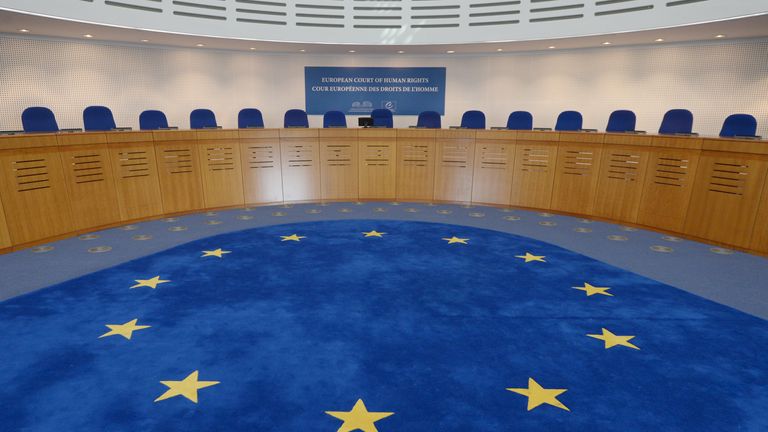
The European Court of Human Rights has found that Poland breached the right to respect for the family life of two same-sex Polish couples married abroad by failing to recognise their relationships.
ILGA-Europe, the International Federation for Human Rights (FIDH), the Network of European LGBTIQ* Families Associations (NELFA), and the European Commission on Sexual Orientation Law (ECSOL) jointly welcome a ruling released today in the case of Formela and others v. Poland, in which the European Court of Human Rights (ECtHR) found that Poland violated Article 8 (the right to respect for private and family life) of the European Convention on Human Rights.
The case concerned two same-sex Polish couples who married respectively in the UK and in Denmark, and requested Polish authorities to register their marriages contracted abroad. The authorities dismissed the requests, finding that registering their marriage would be contrary to the Polish legal order which allowed only marriage between different-sex couples. This failure resulted in the applicants’ inability to regulate fundamental aspects of their daily lives: they were prevented from taking leave to care for their ill partner; could not extend health insurance to cover their partner; were treated as being unrelated in the field of taxation and could not benefit from an exemption from donation tax granted to next-of-kin or from the right to submit a joint tax declaration.
The Court decided that “by refusing to register the applicants’ marriages under any form and failing to ensure that they have a specific legal framework providing for recognition and protection, the Polish authorities have left them in a legal vacuum and have not provided for the core needs of recognition and protection of same-sex couples in a stable and committed relationship.” The Court added that none of the public interest grounds put forward by the Polish authorities could prevail over the applicants’ interest in having their respective relationships adequately recognised and protected by law.
The Court referred to its landmark judgement of December 2023 in Przybyszewska and others v. Poland finding that Poland had breached Article 8 of the Convention as it had failed to comply with its positive obligation to ensure that same-sex couples had a specific legal framework providing for the recognition and protection of their unions.
Poland is also bound by the 2018 Court of Justice of the European Union Coman landmark ruling requiring EU Member States to treat same-sex couples in the same way as different-sex couples when they exercise freedom of movement rights in the EU.
On 27 December 2023, Poland’s Prime Minister, Donald Tusk, announced that a bill to legalise same-sex unions would be introduced and debated in early 2024. This bill was added to the government’s agenda on 8 July 2024.
Annamaria Linczowska, Advocacy and Litigation Officer at Campaign Against Homophobia (KPH) in Poland said: “Today’s verdict shows once again that through lack of legal protection and recognition of same-sex couples, Poland does not meet the Council of Europe standards of human rights protection. Poland should no longer be one of the few CoE Member States that do not provide recognition for same-sex couples. This judgement is an important argument for implementation of civil unions and marriage equality in Poland. To provide a wide protection of human rights, Poland can not forget about same-sex couples and their safety.”
Read KPH’s press release here.
According to Milena Adamczewska-Stachura, who represents the Love Does Not Exclude Association, involved in the fight towards marriage equality in Poland: “Today’s rulings are a wake-up call for the Polish government, reminding it that the unchanging, complete lack of protection for same-sex couples violates the European Convention on Human Rights. Today’s judgement is an important tool for legal practitioners who fight in the courts for transcription of foreign marriage certificates, and a small but important step towards equality.”
ILGA-Europe, FIDH, NELFA and ECSOL submitted a joint intervention in the case.
According to Senior Strategic Litigation Officer at ILGA-Europe, Marie-Hélène Ludwig: “Today’s judgement is another important step towards due recognition and protection of same-sex couples in Poland, whether they are married abroad or wish to legalise their unions in Poland. It is however unfortunate that the Court considered once again that it was unnecessary to examine the applicants’ complaint under Article 14 of the Convention (non-discrimination).”
Daniel Martinović, President of NELFA, said: “We welcome today’s judgement as a powerful affirmation of the rights of same-sex couples in Poland and beyond. This ruling should serve as a beacon of hope and strength for all queer families, inspiring us to continue striving for a more inclusive and secure future where our relationships are recognised, respected, and protected.”
Helmut Graupner, Co-Coordinator of ECSOL, pointed out that “this is the second time Europe’s highest human rights court made clear that Poland is violating the European Convention of Human Rights by refusing same-gender couples formal recognition of their partnership. It should cause Poland to speedily meet European minimum human rights standards. If not going beyond them, as it had done by completely decriminalising homosexuality as early as 1932 when many other European countries like Great Britain, Germany, Austria, Switzerland, Czechoslovakia, Hungary, Norway and Finland still had a criminal total ban on consensual homosexual relations between adults.”
“Today’s European Court of Human Rights’ ruling sends a strong message to Poland and all Council of Europe member states that they must urgently address the persistent discrimination against same-sex couples and grant them equal rights with heterosexual couples’ concluded Elena Crespi, Head of the Europe Programme at FIDH. “The judgement also offers the Polish government a chance to demonstrate its commitment to implementing European court rulings, as part of its efforts to restore the rule of law and align Poland with international standards’.
LGBTI activism in the new far-right era
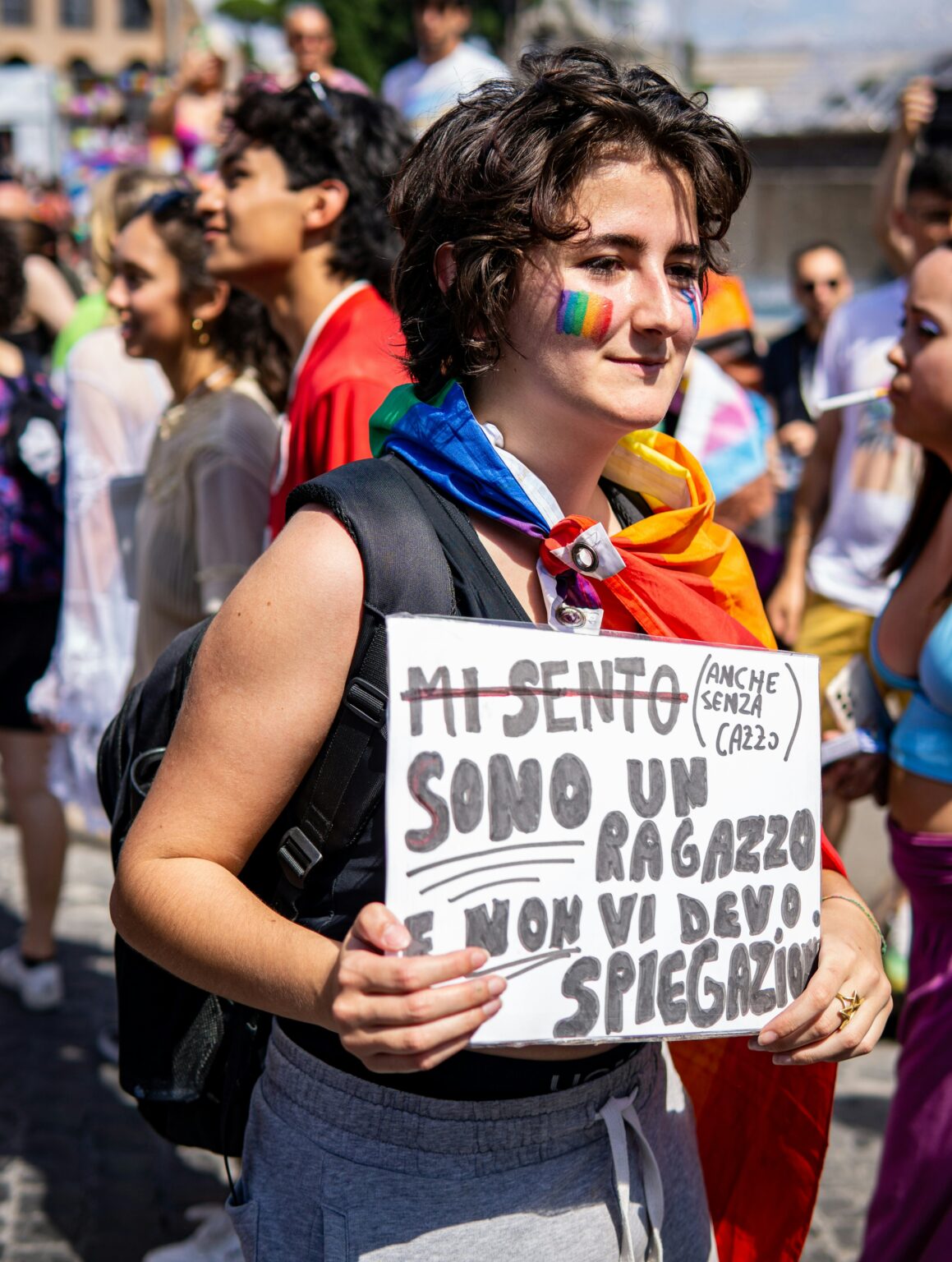
Activists in the Balkans, Greece, Italy and Poland talk about the shared challenges across Europe as the far-right continues to gain ground.
As the far-right gains a serious foothold across Europe, LGBTI groups and organisations continue working and living in the reality that is becoming more and more taxing. Inspired by conversations with activists from Intersex Greece, GayNet Italy, Love Does Not Exclude in Poland, and Trans Mreza Balkans, this blog highlights the shared challenges faced by LGBTI organisations amidst the rising tide of far-right politics. If you are working in an LGBTI NGO, you will undoubtedly find yourself familiar with at least some of these issues.
Financial instability and resource constraints
Many LGBTI organisations face financial instability, relying heavily on external funding with little to no governmental support. External funding poses its own set of challenges as it is often project-based with flexible or core funding hardly available. Such dependency forces organisations to juggle multiple projects. This makes them to expand their expertise in the need to secure necessary funds but it turns to be unstainable in a long run.
Hubert Sobecki, Board Member of Love Does Not Exclude in Poland explains: “We are growing too fast with too few people and too many tasks and processes in hand. The lack of sustainable dedicated funding makes it impossible to plan long-term.” At the same time, strategy and long-term planning is what’s needed in the face of well-organised populist far-right tide.
(Too) rapid organisational growth
Activism is growing as a response to anti-democratic developments and the failure of many states to uphold human rights. Such rapid organisational growth, coupled with limited resources, poses significant challenges. As grassroots movements evolve into more structured organisations, they encounter numerous administrative and operational hurdles as well as a mental toll. These include implementing professional systems, managing cybersecurity, and adapting to increased administrative burdens, while at the same time striving to keep the human-centred family-like essence that many LGBTI groups hold as one of their core values.
Hubert Sobecki from Love Does Not Exclude further notes: “You start as a tight group protesting in the streets and gathering in cafés. Then you find yourself with a large budget and funding to manage, and suddenly you are an employer. This brings internal crises and the need for professionalisation, which we struggle to achieve with limited knowledge, time, and financial and human resources.”
Internal communication
Effective communication and coordination within the LGBTI movement are crucial yet often lacking, as many groups and organisations are pushed into reactive and defensive mode by rapidly growing anti-LGBTI attacks and far-right rhetoric. The rush to respond to external threats and media coverage often lead to disjointed efforts and missed opportunities for collaboration. Additionally, generational differences and varying communication preferences within the community can create friction and hinder cohesive action. Džoli Ulićević from Trans Mreza Balkans says: “There is not enough communication amongst ourselves. Different generations have very specific requests about communication – inside and outside the community.”
Educational gaps and capacity building
The educational systems in many countries fail to adequately address LGBTI issues, resulting in a lack of trained professionals and widespread ignorance and misinformation about the community’s needs. This gap extends to higher education, where legal and social studies often neglect or openly restrict LGBTI topics, leaving future professionals ill-prepared to support the community. Nicole Pikramenou from Intersex Greece emphasises, “There is a profound lack of courses on LGBT and intersex issues in the system of higher education in Greece. Professors who supervise legal theses on LGBTI issues often have no training in these areas.”
Strategic vision
The LGBTI movement both requires and longs for a strategic vision and long-term planning to navigate the complex and evolving political landscape. However, many organisations have had to focus on immediate, reactive measures rather than developing sustained, proactive strategies. Building a long-term perspective, enhancing day-to-day operational skills, and fostering collaboration with broader civil society are essential for enduring progress. Rosario Coco from Gaynet in Italy highlighted the need for “a long-term perspective while boosting our skills in day-to-day tools we use” in the face of rising conservative powers – “for example, it is essential now to know how to debate and prepare for a debate.”
Media representation
Adequate balanced media coverage of LGBTI issues has seen a noticeable decline, contributing to the marginalisation of the community. When LGBTI topics are covered, the media often adopts a sensationalist tone, focusing on what they perceive as the most controversial issues like surrogacy and transgender minors. This perpetuates negative stereotypes, as Rosario Coco from Gaynet Italy observes: “Media talks less about us and at the same time, media is less friendly than before.”
Community building and new ways to do activism
The need for psychological support and community building is critical, especially in regions with heightened hostility. Aleksa Milanović from Trans Mreza Balkans notes: “A lot of young people are joining the movement with specific requests about communication and support. We need to mentor them to think strategically and have a vision.”
Additionally, the need for unrestricted funding to support innovative and effective activism is needed. According to Džoli Ulićević: “We must start being very creative and rethink how we organise, maybe sometimes going back to the door-to-door hit-the-street activism because the old-school rigid NGO model is not working anymore; it is not addressing new challenges and is inefficient the reality we live in.”
More resources
The quotes in this blog were taken in the framework of ongoing conversations we have with LGBTI activists about the impact of rising far-rights. This set of conversations happened as a follow-up on the programme ‘Strengthening the European LGBTI movement in the Context of Rising Anti-LGBTI Forces’ that ILGA-Europe ran in 2021-2022. In the aftermath of the programme we created resource cards for The Hub, our free learning centre for the LGBTI movement.
Trans woman should have been allowed access to hormone therapy in prison, says European Court

The European Court of Human Rights has found that Poland violated Article 8 of the European Convention on Human Rights, protecting the right to private and family life, when a trans woman was denied access to hormone therapy in prison
On July 11, the European Court of Human Rights (ECHR) passed judgement in a case concerning the refusal by Polish authorities to allow a trans woman to continue hormone replacement therapy in prison, although she had already undergone such therapy for nearly one and a half years in two previous prisons.
The Court found that the authorities had failed to justify their refusal on any reasonable grounds, and did not provide sufficient explanations as to why the treatment might have been detrimental to the applicant’s health.
To the contrary, the Court pointed out that hormone replacement therapy had beneficial effects for the applicant’s physical and mental health and that the prescribing doctors had considered it necessary and urgent for the applicant to access such care. As such, the Court concluded that the Polish authorities had failed to strike a fair balance between the competing interests at stake, especially in light of the need to protect the applicant’s health as well as her interest in continuing hormone replacement therapy.
Transgender Europe (TGEU) intervened on this case. The judgement can be downloaded here.
Our submission to the EC 2024 Rule of Law report
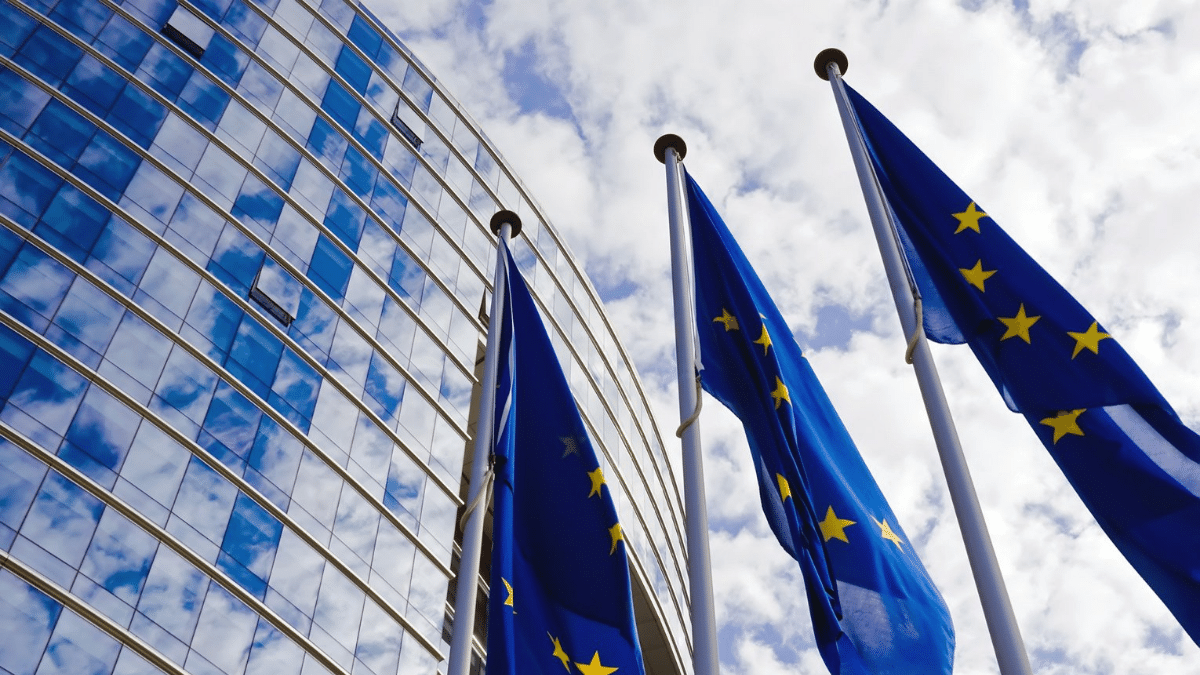
Over the past few years it has become increasingly clear that many government-led violations of LGBTI rights in EU Member States go hand-in-hand with an undermining of the rule of law and democracy. This includes in particular the degradation of the independence of judicial systems and the media landscape.
Particularly stark among this year’s submissions is the continual problem of non-implementation of European court judgments, especially around the right of LGBTI people to respect for their private and family life and the best interests of their children, as well as judgments related to legal gender recognition.
Efforts by authorities to restrict civic space; legal harassment, threats, hate speech and smear campaigns against LGBTI human rights defenders; and inadequate implementation of hate crime and anti-discrimination laws also remained prominent in 2023.
Poland must ensure that same-sex couples are legally recognised, European Court rules
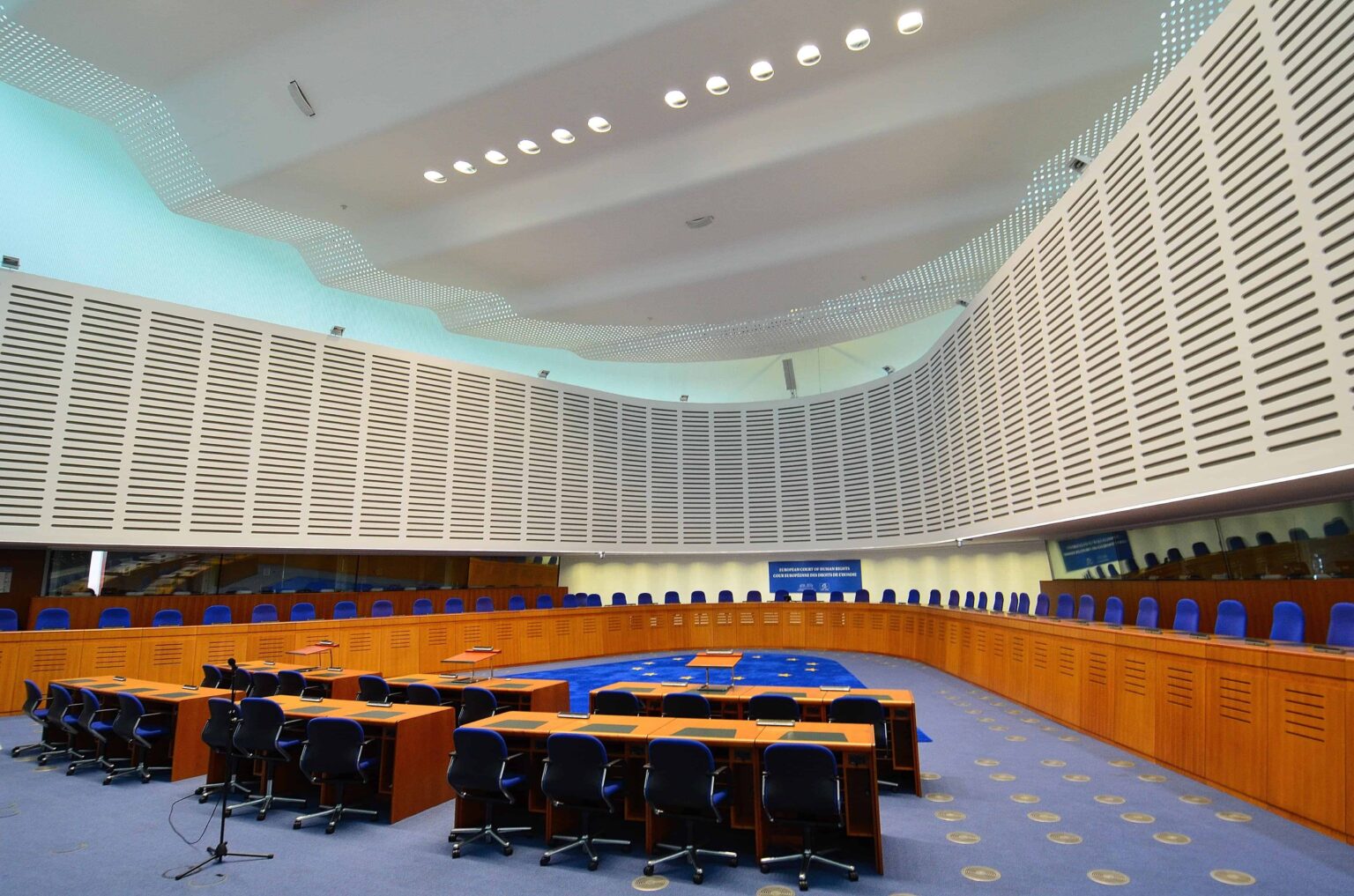
The European Court of Human Rights has issued a judgement against Poland in a case taken by five same-sex couples in the country, seeking to have their relationships legally protected.
Today, in the case of Przybyszewska and Others v. Poland, the European Court of Human Rights (ECHR) ruled that the Polish State is in violation of Article 8 (right to respect for private and family life) of the European Convention on Human Rights, having failed to comply with its duty to ensure that the applicants had a specific legal framework providing for the recognition and protection of their same-sex unions.
That failure had resulted in the applicants’ inability to regulate fundamental aspects of their lives and amounted to a breach of their right to respect for their private and family life.
The case was taken to the ECHR in 2017 and 2018 by five same-sex couples in stable relationships who live in the Polish cities of Lodz, Cracow and Warsaw.
Since marriage is the only way to formalise a relationship in Poland, the couples independently decided to marry a few years ago and approached their local civil registry offices in order to carry out the necessary formalities to get married. The authorities refused to marry them, as under Polish law marriage can only be between a man and a woman.
One of the Polish Government’s arguments was that the traditional concept of marriage as a union of a man and a woman constituted Poland’s social and legal heritage, but the Court noted that the present case did not concern same-sex marriage. Member States, it said, are able to determine the exact nature of the legal regime to be made available to same-sex couples, but have significantly less discretion when it comes down to legal recognition and protection in general.
The Court therefore concluded that the Polish legal framework could not be said to provide for the core needs of recognition and protection of same-sex couples in a stable and committed relationship. Same-sex partners are unable to regulate fundamental aspects of their life together, such as those concerning property, maintenance, taxation, and inheritance. Also, in the majority of situations, their relationship holds no weight in dealings with the judicial or administrative authorities.
The Court took note of the applicants’ and third-party interveners’ submissions indicating the increasingly hostile and homophobic attitudes towards sexual minorities displayed by high-ranking politicians from the then ruling party in Poland, including resolutions “counteracting LGBT ideology” passed by some local government bodies in Poland. Hateful statements had also apparently been made by one of the current judges of the Constitutional Court about the LGBTI community.
The case was supported by the Coalition for Civil Unions and Marriage Equality, which includes the NGO’s: Love Does Not Exclude, the Campaign Against Homophobia, the Polish Society for Anti-Discrimination Law, and the Helsinki Foundation for Human Rights.
According to coordinator for the Coalition, attorney Paweł Knut: “As of today, we start living in a new reality in which the roles have reversed. Same-sex couples no longer have to ask to be recognised in court or in an office. Thanks to the Court’s verdict, it is the state that has to start justifying why it has not yet put proper legal protection in place.”
ILGA-Europe were one of nine groups who intervened in the case. According to our Head of Litigation, Arpi Avetisyan: “Today’s judgment from the European Court is a crucial stepping stone in ensuring the rights of same-sex couples in Poland are duly recognised and protected. No more ‘if’s’ and ‘but’s’ can justify delays in putting in place a framework for legal recognition of rainbow families.”
On Monday this week, Donald Tusk secured the support of the Polish parliament to head a new government, bringing to an end eight years of right wing government under the nationalist Law and Justice (PiS) party.
Mirka Makuchowska of the Polish LGBTI NGO, Campaign Against Homophobia has called on the new prime minister to meet with NGO’s in the light of the ruling. “After eight years of humiliation, a campaign of hatred against LGBT+ people by the government and the state apparatus, a face-to-face meeting with the Prime Minister is badly needed, not least so that Polish women and men can see that there is no longer a better and worse class of citizens, only one nation that we, LGBT+ people, are a part of,” she said.
Welcoming the judgement, one of the litigant couples, Michał and Wojciech, said: “We are hopeful that we may live to see the moment when the state finally acknowledges our 20-year relationship. This is important to us for practical reasons – security in our daily lives – but also for symbolic reasons, so we can finally feel that the state treats us on an equal footing with other citizens. Of course, we hope that the ruling coalition will take the verdict seriously and quickly fulfil the promises they made during the election campaign.”
The Polish government must now report to the Council of Europe Committee of Ministers on the implementation of the judgment.
Bringing change in turbulent times: A call for applications for LGBTI groups in Poland
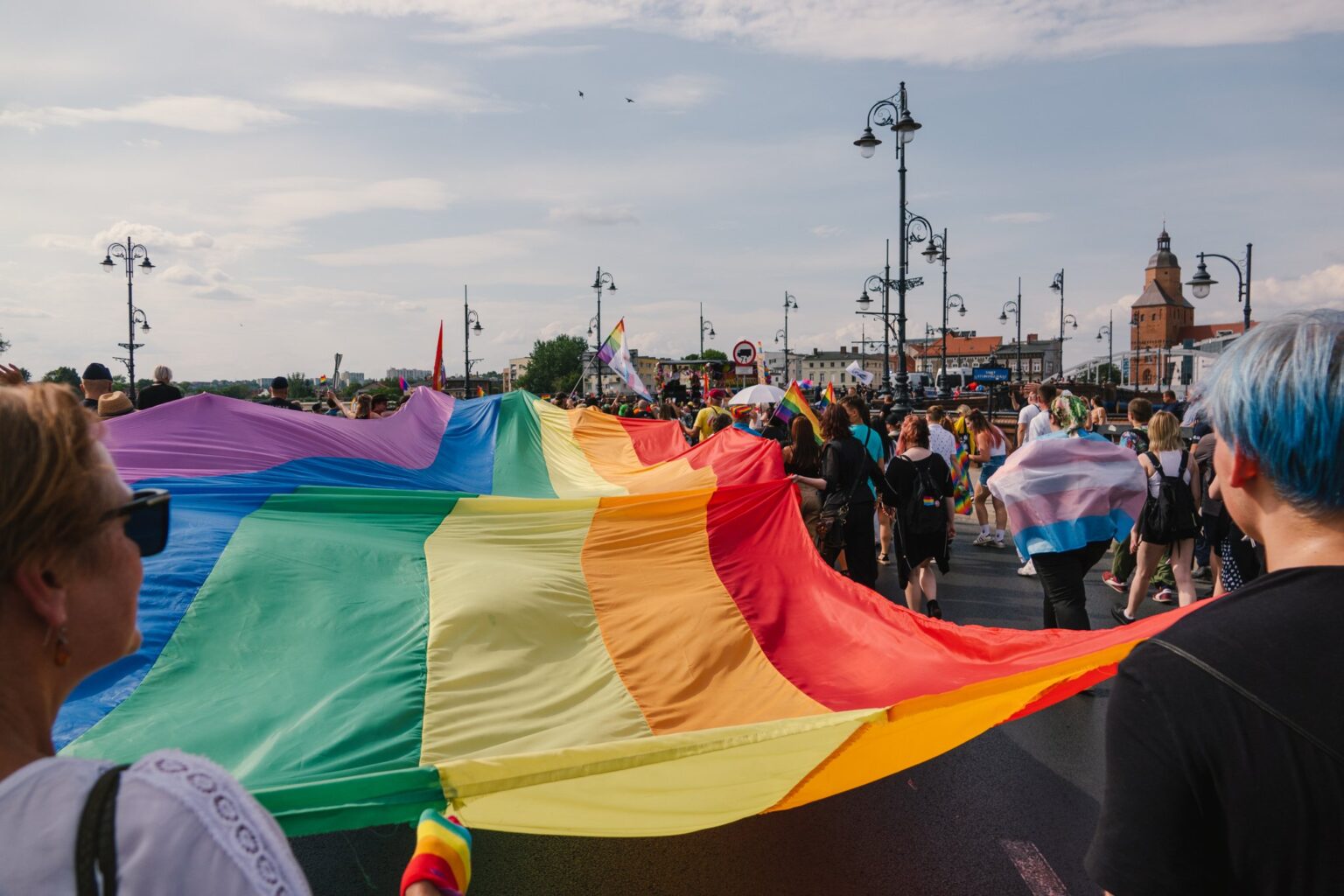
What is this programme about and why are we launching it?
ILGA-Europe invites applications from LGBTI organisations and groups in Poland that see a concrete opportunity to propel their agendas and the work of the LGBTI movement in the country, and have a clear practical idea how to seize this opportunity but have been lacking dedicated resources and support to take action.
LGBTI rights and the situation of the LGBTI movement and community in Poland have been a matter of concern in recent times. The rise of anti-LGBTI forces and growing anti-democratic sentiments have created a climate of conflict and uncertainty, with a significant impact on the state of LGBTI rights and organising in Europe and Central Asia. The ongoing war in Ukraine has further complicated the situation, posing new challenges and threats to the LGBTI community in the region.
We believe that even in the most difficult contexts, there are still opportunities to make positive change – only that change might look different. For example, maybe you identified and established communication with someone involved with your local authorities but you lack dedicated resources to pursue this further; maybe a recent or upcoming event creates an opportunity to mobilise allies or join forces with other movements; or perhaps there is momentum in the community that can be seized to implement a solid strategy to grow the movement.
With this programme, we hope to give organisations the tools and support they need to seize the windows of opportunity they see and to pursue their goals effectively.
We will bring together six LGBTI organisations and groups in Poland with focused, opportunity-based change projects over a period of 18 months and will support their work through a combination of project funding, coordination and learning.
This call for applications is part of a bigger programme that ILGA-Europe launched earlier this year. This programme aims to support and lift up the work of LGBTI organisations that pursue change in hostile and/or rapidly changing environments and focuses on six countries in Central and Eastern Europe, including Poland.
It builds up on the long-term commitment and work of ILGA-Europe to support the parts of our movement operating in high-risk and challenging contexts. Where relevant, we will support connections, mutual support and learning between partner organisations across different countries participating in this programme.
We expect that the strategies and tactics explored by partners in this programme will in the future support and inform the work of the wider LGBTI movement in Europe and Central Asia in navigating challenging and high-risk environments while staying true to our missions.
What is the aim of the programme?
The programme is aimed at:
- Enabling focused, concrete and practical change initiatives that will advance the LGBTI equality agenda and movement in Poland
- Strengthening connections and mutual support and learning between LGBTI organisations working in high-risk, challenging or rapidly changing contexts
What does the programme entail?
The programme includes:
- Funding to LGBTI organisations in Poland based on an opportunity funding framework: we expect to make six grants to LGBTI organisations of 18,000 Euro each for a duration of 18 months in the fixed period of 1 September, 2023 – 28 February, 2025
- Learning, coordination and other capacity development activities to support partner organisations in pursuing their goals
- Sub-regional and regional experience sharing to amplify relevant experiences across the wider movement and to facilitate mutual support, where relevant
Who is this programme for?
This programme is for any LGBTI group or organisation in Poland that:
- Is connected to the LGBTI community and the rest of the LGBTI movement in Poland,
- Has identified concrete and practical opportunities to create change in the current context
- Has a clear idea how to address this opportunity but has been lacking support and resources to implement this vision
What can be supported?
This programme is not restricted to specific thematic priorities or types of strategies and activities; we want to offer support to issues, strategies and activities that Polish organisations themselves see as the most important and impactful right now.
Organisations can apply based on the thematic priorities, agendas, and needs that are relevant to them and their context, while situating the work and outcomes supported by the grant in the following framework consisting of five strategic directions:
- Empowered and inclusive LGBTI communities
- Strong, resourced, skilled, accountable and sustainable LGBTI organisations
- Social acceptance and inclusion of diversity related to sexual orientation, gender identity, gender expression and sex characteristics in societies
- A legal and policy framework which protects and promotes human rights and equality of LGBTI persons at local and national levels
- Fair, just and equal societies and economies
When applying, you will need to indicate the strategic direction(s) that your work will contribute to.For further information about these strategic directions, please see ILGA-Europe’s Strategic Framework.
The programme can support a wide range of strategies and activities, including advocacy, campaigning, alliance-building, movement development and (informal) education.
The key considerations in selecting partners in the programme will be:
- Whether the proposed project is based on a strong and insightful analysis of an opportunity to advance the movement’s agenda right now
- Whether the proposed project offers a clear action plan and convincing vision of change, rooted in the wider context in the country and LGBTI movement’s work
- Whether the organisation has knowledge and capacity to bring this vision and plan into action
How to apply?
- To apply please submit your application and budget by Sunday, 25 June 2023, 23:59 (CEST/ Brussels)
- Applications are to be sent to both ruslana@ilga-europe.org and seka@ilga-europe.org
- Please use the application form and budget template for this call, both available below
- We expect to inform all applicants about the outcomes of the call during the first week of August
- We expect the projects to start on 1 September, 2023 and be completed by 28 February, 2025. Final reports will be due on 31 March, 2025
How will we be working together?
- This programme is designed as a close cooperation between ILGA-Europe and grantee partners that combines funding with learning, coordination and capacity development activities.
- Learning, coordination and capacity development activities are an integral part of the programme, which relies on active participation of partners in both planning and implementation. It will be designed by ILGA-Europe in consultation with grantee partners to direct this support where it is most needed. We will rely on grantee partners to inform this work and to show initiative in identifying relevant interest and needs of their organisations.
- During the programme, we will be regularly in touch through quarterly calls. These conversations are to discuss your work, project progress, opportunities, threats, learning and other support ideas and needs, and the state of expenditures, as well as for us to discuss our updates and plans with you. These conversations are also important for us as an opportunity to learn from the experience of our grantee partners and to timely identify important connections to the work and realities of others in the broader LGBTI movement.
- We also hope that partners will be open to contributing to regional and sub-regional learning and coordination spaces, where relevant, so that diverse strategies and experiences are amplified and feed into the work of the wider movement.
- You will need to report on the grant twice: interim narrative and financial reports halfway through the project and final narrative and financial reports one month after project completion.
Financial management of the grant
- This is a project grant. Only the costs that are linked to the implementation of the goals and activities of the call and your approved project are eligible. The grant needs to be spent and the costs need to be incurred in the project period, i.e. 1 September 2023 – 28 February, 2025. All costs need to be documented (contracts, payslips, timesheets, invoices, proofs of payment and similar documents).
- To manage this grant, your organisation needs to have an accounting and financial management system in place that allows to track income and expenditures per project/ funder. You will be asked to report in Excel and support your expenditures with records: contracts, procurement documents, invoices, timesheets, proof of payment, documentation of exchange rates.
- This funding is sourced from the EVZ Foundation and the Global Equality Fund, so your expenses and overall financial management system will need to be compliant with the source funders’ regulations. ILGA-Europe will provide clear guidance on how to ensure this.
- You will need to track your costs on a regular basis, and be able to generate the following information and reporting on your grant’s finances:
- During quarterly calls we will discuss the state of your expenditures
- Interim financial reporting will occur halfway through the project. The interim financial report will be an Excel sheet with a list of expenses and the supporting documentation for these expenditures.
- Final financial reporting will occur at the end of the project period. You will have to have spent 100% of that year’s budget, submit the list of expenditures and the supporting documentation for all the expenses.
ANY QUESTIONS?
All answers were returned via email and are published on this page, in order to support equal access to information among all applicants.
Our submission to the EC 2023 Rule of Law report
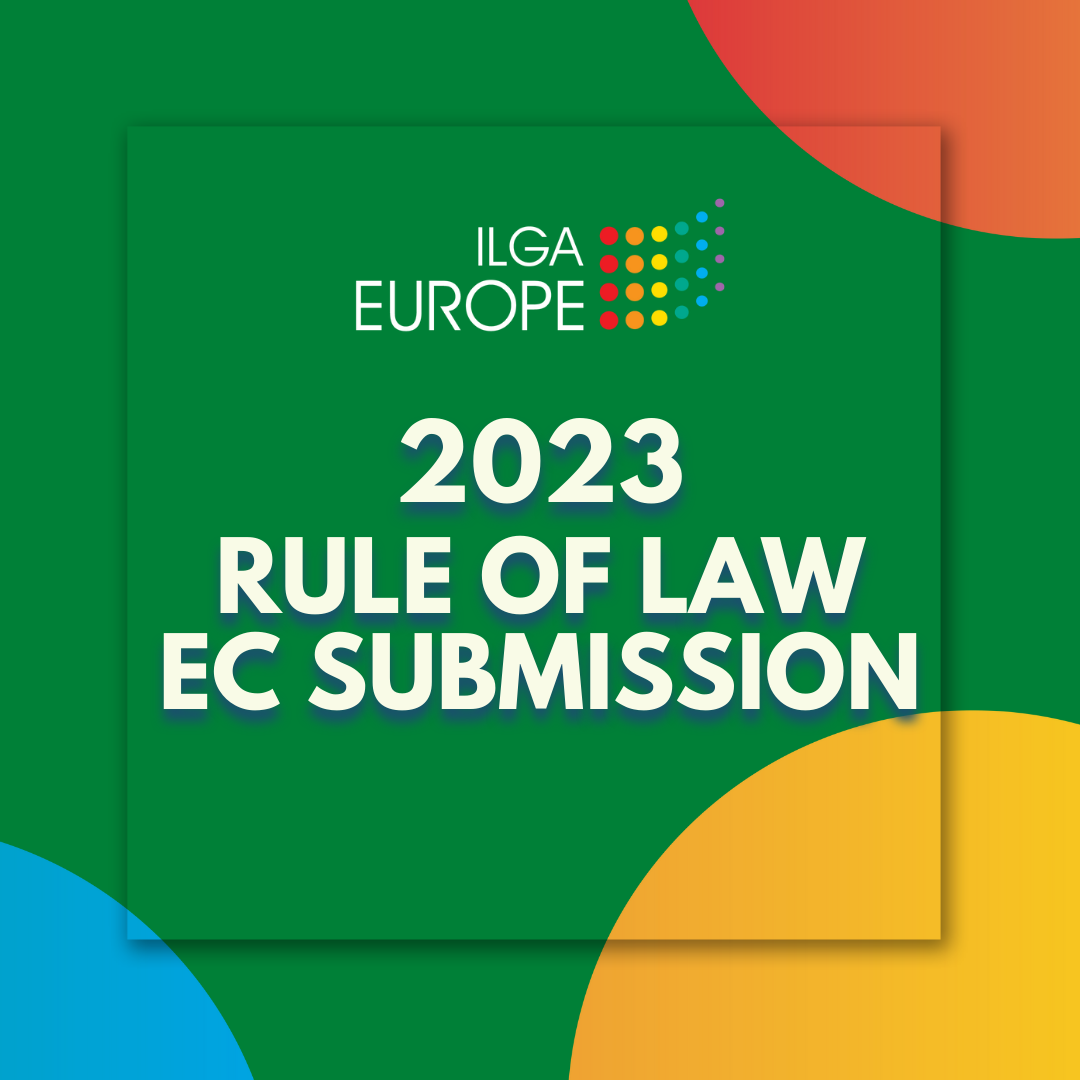
The submission covers developments in eight EU Member States as regards rule of law developments in the countries which have had an impact on the fundamental rights of LGBTI people and their democratic participation, with a focus on the past year (2022).
We have kept our inputs relevant to the content asked for by the consultation, and therefore we have not included all fundamental rights violations against LGBTI people, or all restrictions experienced by LGBTI civil society in the respective countries. We have only included them where there is a clear link to the issues of rule of law contained in the consultation.
Notably the submission covers the following topics:
- Manipulation of judicial processes to attempt to erode the human rights of LGBTI people and their access to justice;
- Politicians attempting to discredit and delegitimise the rulings of courts that uphold the rights of LGBTI people;
- Harassment and intimidation of LGBTI human rights defenders by law enforcement/prosecution services;
- Smear campaigns and negative narratives against LGBTI people, particularly where independence of media is threatened;
- SLAPPs against activists or journalists reporting on topics of public interest related to LGBTI;
- Censorship of LGBTI content;
- Tabling and adoption of laws aiming to reduce fundamental rights of LGBTI people;
- Tabling of laws aimed at restricting the functioning of civil society organistions;
- Arbitrary application of Covid-19 regulations to attempt to restrict the freedom of assembly of LGBTI people;
- Continued non-implementation of CJEU or ECtHR judgements which would improve the lives of LGBTI people;
- Anti-LGBTI discriminatory speech from political and religious leaders affecting public perception of LGBTI CSOs and creating an unsafe climate for LGBTI human rights defenders;
- Insufficient implementation of legal protection (e.g. protection against hate crime) for LGBTI people by responsible services, sometimes including Ombudspersons.
After Polish Case, CJEU Rules to Protect Self-employed Workers based on Sexual Orientation

With EC infringement procedure against Poland still outstanding, the Court of Justice of the European Union (CJEU) has ruled that sexual orientation cannot be a reason to refuse or conclude a contract with a self-employed worker.
In December 2017, a self-employed worker and his partner published a music video on YouTube aimed at promoting tolerance towards same-sex couples. Shortly after the video went public, the worker’s shifts were unilaterally cancelled by his employer, Poland’s public television channel. Subsequently, no new contract for specific work was concluded with him.
For seven years up to release of the video, the freelancer had prepared audiovisual material for TP, a company that operates a nationwide public television channel in Poland. Considering himself to be a victim of direct discrimination based on his sexual orientation, the worker brought an action for compensation before the District Court of Warsaw.
The District Court sought guidance from the CJEU, wanting to know whether the EU Directive 2000/78 on equal treatment in employment and occupational activities precludes Poland’s national legislation. That legislation allows an employer not to conclude or renew a contract with a self-employed worker, based on that person’s sexual orientation, on the basis of the freedom of choice.
The EU Directive 2000/78, which covers a wide range of occupational activities, establishes a general framework for combatting discrimination based on sexual orientation. Therefore, the court was tasked with deciding whether the situation the self-employed worker found himself in fell under the directive.
In its judgement delivered today, the CJEU holds that the Directive 2000/78 must be construed broadly, covering the access to any occupational activity, even if the worker is self-employed under contract with an employer.
The Court noted that the directive seeks to eliminate, on grounds relating to social and public interest, all discriminatory obstacles to access to livelihoods and to the capacity to contribute to society through work, irrespective of the legal form in which it is provided.
According to ILGA-Europe’s Head of Litigation, Arpi Avetisyan, “Today’s judgement is another important step forward in strengthening the protection against discrimination in the workplace. The judgement clarifies that EU law protects from discrimination based on sexual orientation also for self-employed and thus reinforces the protection against discrimination equally for the self-employed across the EU. The judgement is especially crucial for LGBTI people in those municipalities in Poland which still have anti-LGBTI resolutions or family charters in place. We hope that Polish authorities will take the necessary steps to implement this judgement swiftly and make it a reality.”
In the summer of 2021, the European Commission (EC) announced infringement procedures against Poland and Hungary for the violation of fundamental rights of LGBTI people and non-cooperation on the matter. While the Hungarian case has been forwarded to the CJEU, the Polish case, despite theoretically being on the same institutional timeline, has not been brought to the CJEU yet, and no up-date is available at this moment of time.
“For years now, we have been observing some EU member states consistently testing EU democracy and the protection of the rule of law and fundamental rights. The infringement procedures sent a clear signal that enough is enough, and the EC needs to see it through.”
Katrin Hugendubel, Advocacy Director, IlGA-Europe
According to ILGA-Europe’s Advocacy Director, Katrin Hugendubel: “In opening infringement procedures, the EC finally clearly stated that the Polish government is violating fundamental rights and that the EC cannot tolerate such violation and the unwillingness of the government to engage in sincere cooperation.
“Even if a few regions have withdrawn the so-called ‘LGBT free zone’ declarations, the discriminatory declarations still prevail on municipal, local and also regional levels. In order not to lose credibility, the EC needs to follow through the infringement procedure and to ensure that all such discriminatory resolutions are repealed.
“For years now, we have been observing some EU member states consistently testing EU democracy and the protection of the rule of law and fundamental rights. The infringement procedures sent a clear signal that enough is enough, and the EC needs to see it through.”
Sexual orientation is not a reason to terminate a contract with a self-employed worker, says Advocate General of the CJEU
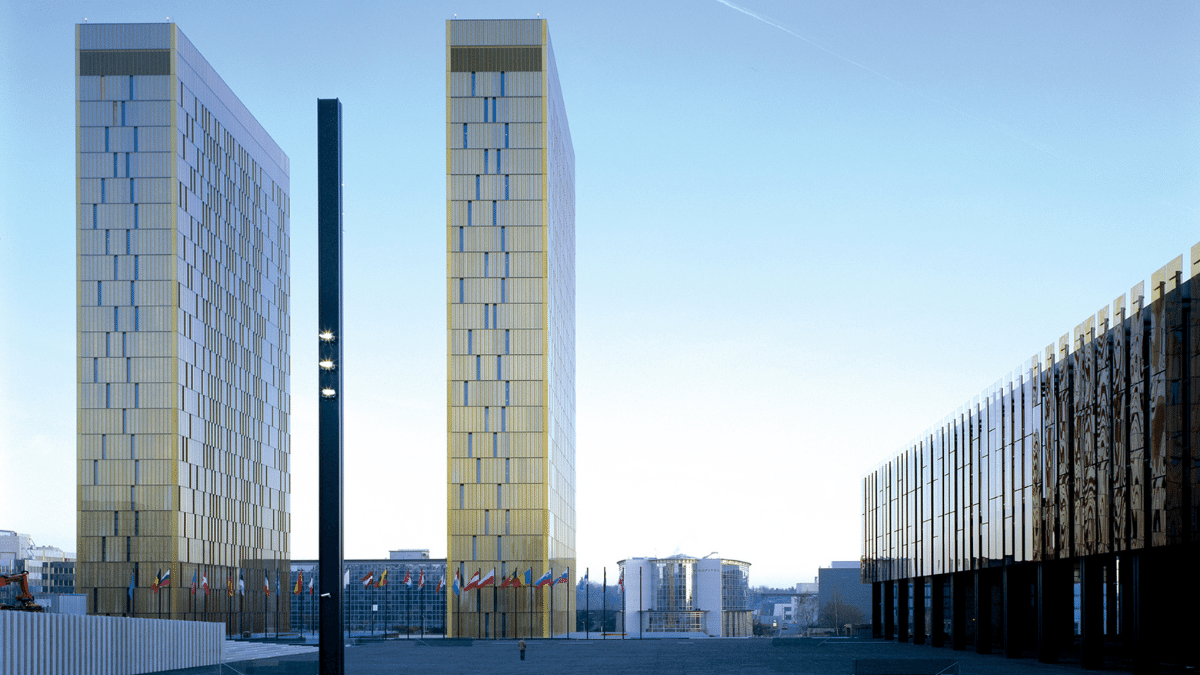
Today, the Advocate General of the CJEU has issued an opinion in the case of J.K. vs the Polish public broadcaster company TP, stating that discrimination based on sexual orientation in employment is not acceptable under EU law.
ILGA-Europe welcomes the Advocate General of the Court of Justice of the European Union’s (CJEU) opinion, published today in the case C-356/21, concerning the refusal to continue a contract of work with a self-employed person on the basis of that person’s sexual orientation violates EU law.
The applicant, J.K., is seeking compensation from the Polish public broadcaster TP for the breach of the principle of equal treatment on the grounds of sexual orientation in the form of direct discrimination in the context of the employment relationship between the two parties. J.K is openly a member of LGBTI community, and together with his partner, he engages in the activism for LGBTIQ+ rights, including running a popular YouTube Channel.
The Defendant is the Polish public broadcaster TP, a nationwide public TV network fully owned by the State Treasury. During 2010 – 2017, the employment relationship between the Applicant and the Defendant was based on regularly concluded, consecutive short-term contracts for specific work.
In December 2017, the Applicant and his partner released a Christmas video on their YouTube Channel, where they appeared among other members of the LGBTIQ+ community. Two days after the video was posted, the Applicant received an e-mail from his immediate supervisor cancelling his scheduled shifts. He was also informed that the Defendant was not planning to cooperate with the Applicant any longer. He was replaced by another employee, who had neither the qualifications nor the experience to perform the tasks previously performed by the Applicant.
In her opinion the Advocate General firstly confirmed that self-employment is covered under the Directive and by covering the area of ‘employment and occupation’, the “Directive aims at enabling citizens to realise their potential and earn their living by providing their work”. Furthermore, in addressing the issue concerning “conditions for access to self-employment”, the AG suggests that the Directive covers both initial stage of concluding a contract, but also the provision relating to the termination of contractual relationship. At all stages, discrimination based on sexual orientation is not acceptable.
According to Arpi Avetisyan, Head of Litigation with ILGA-Europe: “Advocate General Capeta’s opinion is a welcome confirmation that discrimination based on sexual orientation has no place under the EU Directive, including for self-employed workers. We hope the Court will follow the Advocate General’s opinion and build on it so that EU law in this area protects self-employed workers ensuring equal access to employment. Freedom to choose a contracting party does not imply freedom to discriminate.”
Rainbow families have the right to move and reside freely, EU court reiterates

The Court of Justice of the EU has stated that birth certificates issued in an EU country must be recognised across the EU, and that EU countries should protect the freedom of movement of rainbow families.
On June 24, the Court of Justice of the European Union (CJEU) issued a reasoned order establishing that when an EU country has recognised two persons of the same sex as parents of a child, then the EU country of which that child is a national, should issue identity documents to that child with both parent on them, and all EU countries should protect the right to freedom of movement of the child and their family. This is a confirmation of a previous landmark judgment, that of Baby Sara.
Poland has been told that it must now provide the child known as Baby Sofia, born in 2018 to Irish and Polish mothers, with identity documents and guarantee her and her parents the right to move and reside freely in the country.
The case arose when Poland denied citizenship to baby Sofia, daughter of two mothers, Kashka, from Poland, and Sinéad, from Ireland. In 2018, Sofia was born in Spain, where the couple had gone to receive IVF treatment. Spanish authorities issued a birth certificate with the name of the two mothers but not identity documents, as children of foreigners are not automatically entitled to citizenship in the country.
At that time, in Ireland, two women could not be recognised as parents on a birth certificate. In the eyes of Irish law, the mother was the woman who gave birth to the child. As Kasha, the biological mother was not Irish, Sofia couldn’t apply for citizenship in Ireland either.
In Poland, where rainbow families are still not recognised, authorities refused to recognise Sofia’s birth certificate, depriving her of access to citizenship and identity documents. For over two years Sofia remained without any documentary proof of any nationality, and therefore at risk of statelessness. The family was could not leave Spain, as Baby Sofia couldn’t travel without documents. Her mothers had to move house every couple of months, as they were running out of savings.
Now, the CJEU has stated that an EU country is obliged to provide identity documents to a child when the child, being a national of the country, has a birth certificate issued in another member state that designates two persons of the same-sex as their parents. All EU countries must respect the documents that allow the child and their family to exercise their right to move and reside freely with the territory of the EU. These are protections granted in Articles 20 and 21 of the Treaty on the Functioning of the European Union (TFEU) and Articles 7 and 24 of the Charter of Fundamental Rights of the EU, among others.
With this reasoned order, the CJEU has confirmed the landmark judgment delivered in the Baby Sara case last year, which arose when a same-sex couple were refused a birth certificate in Bulgaria for their daughter, also born in Spain. Poland must now provide Baby Sofia with identity documents and guarantee her and her mothers the right to move and reside freely in the country.
In the meantime, Spain issued identity documents to Sofia in March 2019. Spanish law foresees a safeguard measure that allows children born in its territory who would otherwise be stateless to acquire Spanish nationality at birth. The couple also applied for Irish citizenship for Sofia through naturalisation over two years ago, but they have not received any feedback since March 2020. The Children and Families Relationship Act, which allowed both women in a same-sex couple to be automatically recognised on their child’s birth certificate, was enforced in Ireland in May 2020.
Welcoming the order, but concerned about its implementation, the lawyer for Baby Sofia’s parents, Anna Mazurczak said: “We are, of course, happy that the Court has applied the reasoning from the Bulgarian case in a Polish case. However, the Court has not been as straightforward as we had hoped. We wanted to make sure that Poland had the obligation not only to issue an ID but also to indicate the first names of same-sex parents on it.
“Through the CJEU’s reasoned order, we hoped to convince the Supreme Administrative Court of Poland that issuing an ID with one mother’s name is not enough. The CJEU has already held that different last names contained in documents issued by different member states can cause an obstacle to the right of freedom of movement. In my opinion, the different parent names on the ID card can violate freedom of movement even more.”
Recently, a draft amendment to the Family Code was submitted for public consultation in Poland, where marriage equality, same-sex registered partnerships and co-parent recognition are not recognised. While it could improve the situation of children of same-sex parents born abroad by recognising their birth certificates, it also presents a discriminatory approach towards rainbow families. There is no clear timeline for the development and implementation of these amendments.
According Arpi Avetisyan, Head of Litigation at ILGA-Europe: “The CJEU’s reasoned order is a welcome confirmation of the rights of children in rainbow families. The Polish and Bulgarian cases that have reached the CJEU, Baby Sofia and Baby Sara, are not isolated. They show the tip of the iceberg of the numerous examples of the hardships experienced by rainbow families in the EU.
“We hope that the upcoming European Commission’s legislation on parenthood recognition, by incorporating the CJEU rulings, will provide a framework for removing obstacles to freedom of movement for rainbow families. What is crucial at the present, however, is that Poland and Bulgaria put in place necessary procedures for implementing CJEU’s judgment and reasoned order as soon as possible.”
Meanwhile, in Bulgaria, the ruling in Baby Sara’s case has not yet been implemented. While on 16 May, Sofia’s Administrative Court, which had asked the CJEU for clarification in this case, ruled that Capital Municipality, Pancharevo District must issue a birth certificate with both of Sara’s mothers on it, the decision was appealed by the Municipality on 13 June. This means that to date, Sara is still without documents and at risk of statelessness.
Polish public broadcaster TP in EU Court for Discrimination Against Self-employed LGBTI Person
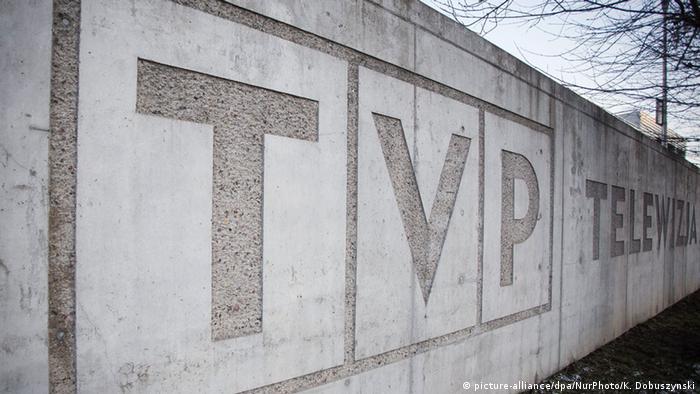
Today, the case of J.K. vs the Polish public broadcasting company TP, in which the applicant is seeking compensation for the discontinuation of his freelance contract after he appeared in a YouTube video with his same-sex partner, is being heard for the first time at the Court of Justice of the European Union.
Today, the CJEU is holding a preliminary hearing in the case C-356/21, to decide whether the refusal to continue a contract of work with a self-employed person on the basis of that person’s sexual orientation violates EU law.
In the case, the applicant, J.K., is seeking compensation from the Polish public broadcaster TP for the breach of the principle of equal treatment on the grounds of sexual orientation in the form of direct discrimination in the context of the employment relationship between the two parties.
The Applicant is openly a member of LGBTI community, and together with his partner, he engages in the activism for LGBTIQ+ rights, including by running a popular YouTube Channel.
The Defendant is the Polish public broadcaster, a nationwide public TV network which employs over 2 000 workers, fully owned by the State Treasury, intended to fulfil a public service mission. During 2010 – 2017, the employment relationship between the Applicant and the Defendant was based on regularly concluded, consecutive short-term contracts for specific work.
In December 2017, the Applicant and his partner released a Christmas video on their YouTube Channel, where they appeared among other members of the LGBTIQ+ community. Two days after the video was posted, the Applicant received an e-mail from his immediate supervisor cancelling his scheduled shifts. He was also informed that the Defendant was not planning to cooperate with the Applicant any longer. He was replaced by another employee, who had neither the qualifications nor the experience to perform the tasks previously performed by the Applicant.
Three Member States (Belgium, the Netherlands, and Portugal) and the European Commission, have filed written statements in support of the Applicant. All of them argue that the Member States may not exclude from the scope of Directive 2000/78 in their national law, the freedom of choice of the party to contract, to the extent that it is based on sexual orientation.
Poland, on the other hand, argues that the termination of contract and refusal to conclude a further contract with a self-employed person, even if based on that person’s sexual orientation, does not violate EU law.
According to Arpi Avetisyan, Head of Litigation with ILGA-Europe: “With this case, the CJEU has the opportunity to clarify the scope and practical applicability of the principal of non-discrimination based on sexual orientation, in the field of employment and occupation. This case could strengthen the standard and confirm that the fact that a person has been hired as a self-employed person is irrelevant for the purposes of protection from discrimination, both regarding access to employment and its termination.
“Otherwise, to allow limitation the scope of Directive 2000/78 would legitimise discriminatory choices of employers and contracting parties, and could encourage businesses to work more frequently with self-employed workers, as outside the framework of employment contracts, they would be free to discriminate.
“Any arguments of Poland in the present case are in fact contrary to the general principle of non-discrimination based on sexual orientation. Moreover, also under the Directive that self-employed persons would be less protected than other employees.”
European Commission and Council should refrain from approving recovery funds to the governments of Poland and Hungary

An Urgent call on the European Commission and the Council of europe to refrain from approving recovery funds to the governments of Poland and Hungary, and to provide direct support to local authorities, civil society and human rights defenders providing for refugees of the war.
We are deeply concerned that the European Commission and the Council consider unblocking the EU Recovery and Resilience Facility funds to the governments of Poland and Hungary, and that the Commission talks about further delaying the activation of the rule of law conditionality regulation in their regard, due to the current political and humanitarian crisis following Russia’s military invasion of Ukraine on 24 February.
Revising the critical decision to suspend approval of the EU recovery funding for Poland and Hungary now, would send the wrong political signal to the governments of Poland and Hungary who have made no progress in course-correction of laws, policies and practices undermining checks and balances and the overall rule of law architecture. Such a decision also risks setting a dangerous precedent and undermines the EU rule of law conditionality mechanism, designed to protect the EU budget in the long run.
As organisations working across Europe to defend fundamental rights and the rule of law, we call on the European Commission and the Council to refrain from approving recovery funds to the governments of Poland and Hungary in haste without genuine and solid guarantees that the rule of law concerns, notably regarding the lack of independence of the judiciary and anti-corruption democratic safeguards, will be resolved.
The war in Ukraine should not be used as a pretext to weaken the rule of law mechanism and let any Member State get away with serious rule of law violations. If anything, this war shows the very real dangers that come with a country dismantling the rule of law and democratic oversight. This is not the time to set aside concerns about the rule of law and respect of fundamental rights in EU Member States. Unblocking funds whereas the concerns in the countries remain as serious as ever, would be detrimental.
The EU has a legal obligation to mitigate the risks of EU funding being misused, and hold firm on the need for further negotiations before releasing the recovery funds, while at the same time triggering without further delay, the conditionality mechanism. Article 7.1 TEU procedures must continue as Article 2 TEU continues to be undermined.
Neither Poland, nor Hungary, have made meaningful progress to restore the checks and balances necessary to uphold the rule of law and reinstate an independent judiciary. If the EU allows the Polish government to ignore the CJEU ruling concerning the Disciplinary Chamber of the Supreme Court, the risk that independent civil society in Poland, which has been the main respondent to the Ukrainian refugee crisis, will be further criminalised and forced to halt their activities is very real.
Contrary to demonstrating positive reforms the Polish Parliament tried to amend a law to ensure impunity for authorities during the Ukraine crisis. In addition, a legislative proposal, attempting to ensure that government officials could not be held accountable for their disposition of emergency funds, was narrowly defeated, by only one vote in the Polish Parliament.
Directly support local authorities, civil society and human rights defenders providing for refugees of the war
The war in Ukraine has already forced over three million people to leave Ukraine to seek safety. The support of millions of people poses a major challenge involving the provision of shelter, food, clothing, childcare, health care, psychological support, legal aid, and other essential services.
Civil society, local authorities, citizens and human rights defenders have responded rapidly, providing the vast majority of services to those fleeing. By contrast assistance from central government in Hungary and Poland has been limited. As further arrivals are anticipated and longer term support is required, direct financial assistance to civil society is urgent, to avoid a fast-developing humanitarian disaster.
The government in Poland is not just falling short on its humanitarian duty and the local relief effort. It is under suspicion of gross mismanagement of both EU and Polish funds designated to support vulnerable groups.
There is undoubtedly a serious risk that making emergency means available to the government will affect the management of EU funds contrary to their purpose and in violation of generally accepted standards of responsible management. There is also a serious risk that if allowed to pass through the government, such emergency means may be abused for political ends, and inefficiently spent for its purpose, 41 Polish civil society organisations warn. We share their concerns.
This is not the moment to set aside rule of law conditionalities. In Hungary, the government’s continued failure to execute the CJEU’s judgment establishing that the so-called ‘Stop Soros law’, criminalising support to asylum seekers and refugees, violates EU law and should be repealed.
The law exposes civil society organisations and human rights defenders on the frontline providing assistance to refugees fleeing Ukraine to serious risks, including prison sentences. The EU cannot allow the Polish government to continue to reject the rulings of the CJEU concerning the Disciplinary Chamber and risk further attacks. Scrutiny is required.
We call on you as Presidents of the European Commission and the Council to hold strong on the fight for freedom, democracy and respect for fundamental rights and rule of law that Russia’s invasion in Urkaine has put back at the centre of our lives. Emergency support can be made available through other ways and our organisations are ready to meet and discuss how we can support the European Commission in ensuring that emergency funds reach those who urgently require assistance.
EU Ministers must act on the serious breach of EU’s rule of law and values in Poland
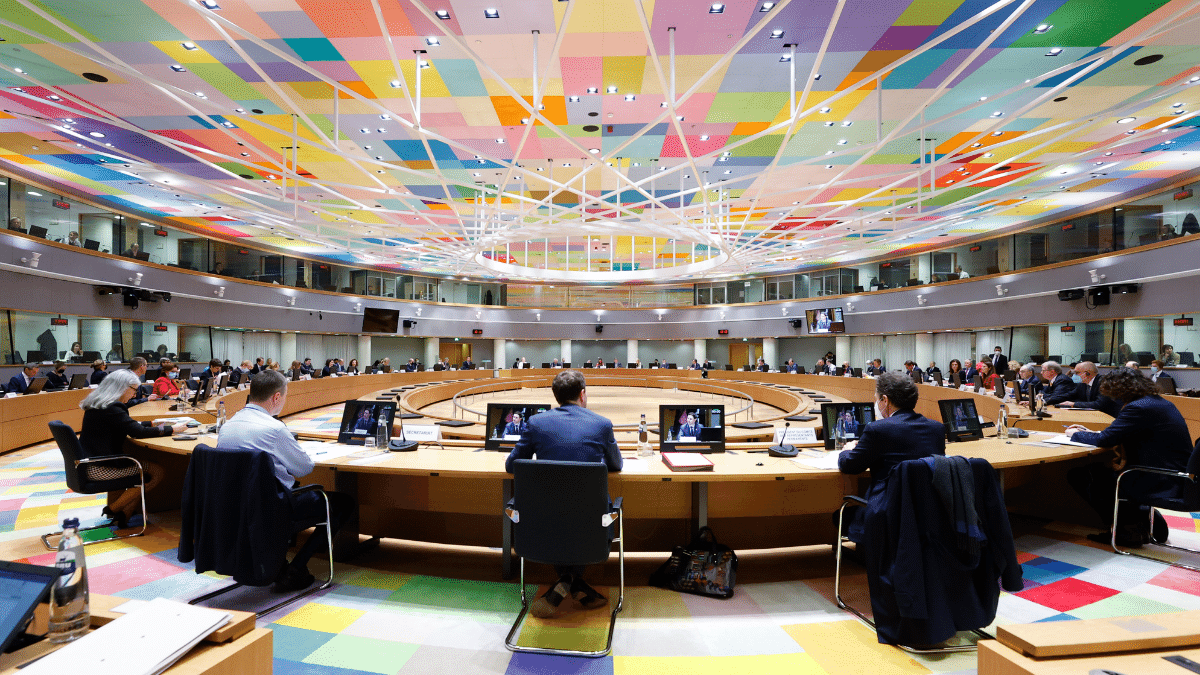
While Poland keeps attacking LGBTI people and their rights, ILGA-Europe have signed a joint letter along with 86 other NGOs asking EU Ministers to take action.
ILGA-Europe, along with 86 other NGOs, have written a letter to EU Ministers to act decisively on Poland’s rule of law crisis, ahead of the upcoming General Affairs Council meeting on Tuesday 22 February.
The letter addresses the major rule of law concerns in Poland, including media freedom, civic space, SRHR and LGBTI rights. It outlines how systemic rule of law violations have enabled Poland to directly attack the human rights of LGBTI people and their defenders.
In it, we all call for decisive action under Article 7 to protect rule of law, democracy and fundamental rights in Poland. This comes in light of the decision of the Court of Justice of the European Union (CJEU) on 16 February, which confirms the legality of the EU’s rule of law conditionality.
According to the judgement, member states now have the tools to properly and effectively defend the rule of law in Poland. We call for these tools to be used immediately and unequivocally.
Read the letter to EU Ministers.
Further information:
- Find out more about CJEU judgment of February 16
- Learn more in our submission to European Commission’s 2022 Rule of Law Report.
Our submission to the EC 2022 Rule of Law Report
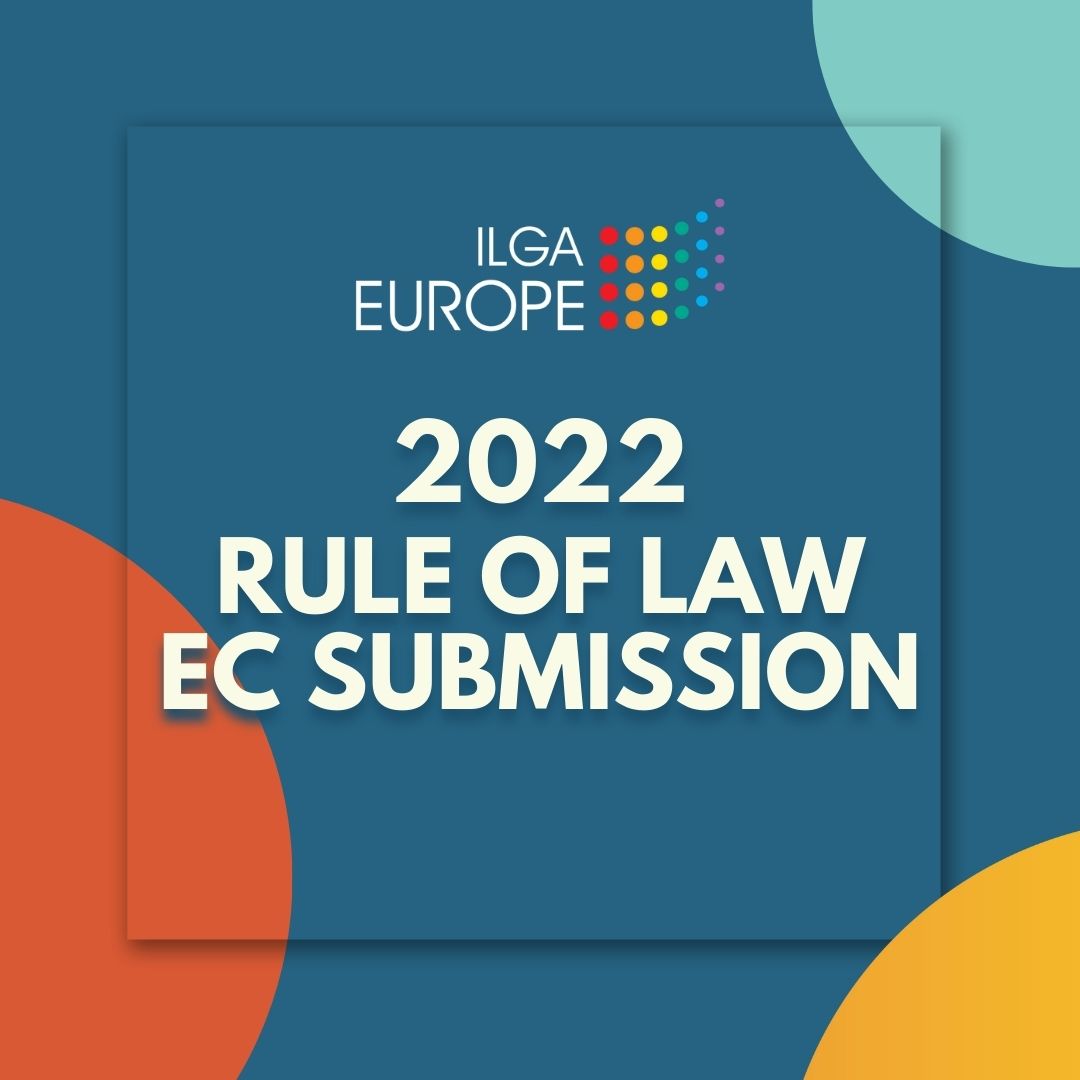
Expert contributions were provided by organisations PROUD (Czech Republic), LGBT komiteen (Denmark), Inter-LGBT (France), Háttér Társaság (Hungary), KPH & Atlas of Hate (Poland), ACCEPT (Romania), and Legebrita (Slovenia).
The developments encompassed in the submission point to systematic attacks on the fundamental rights of LGBTI people enabled by the weakening of rule of law and democratic structures. We have not included all fundamental rights violations against LGBTI people, or all restrictions experienced by LGBTI civil society in the respective countries, only those which are relevant to the respective headings of the consultation, where there is a clear link to rule of law.
Notably the submission covers the following topics:
- Political interference or bias in court cases related to LGBTI rights, in particular where independence of the judiciary is under attack;
- Anti-LGBTI bias, smear campaigns and censorship of LGBTI content, in particular where media freedom is under attack;
- Funding restrictions or discriminatory distribution of public or EU funds, affecting LGBTI organisations;
- Arbitrary application of Covid-19 regulations to attempt to restrict the freedom of assembly of LGBTI people;
- Covid-19 emergency measures affecting the process of preparing and enacting laws (exclusion of LGBTI CSOs in consultation phases or even fast-track adoption of legislation directly attacking LGBTI people);
- Non-implementation of CJEU or ECtHR judgements which would improve the lives of LGBTI people;
- Judicial harassment of LGBTI activists (in particular SLAPPs);
- Insufficient follow-up of anti-LGBTI hate crime cases;
- Anti-LGBTI discriminatory speech from political and religious leaders affecting public perception of LGBTI CSOs and creating an unsafe climate for LGBTI human rights defenders (in some cases leading to attacks on CSO offices, employees and volunteers).
What has 2021 meant to the LGBTI movement in Europe? Listen to our latest podcast episode to find out this year’s highlights
As 2021 comes to an end, we have collected some of the moments, events and trends that have marked the year in the latest episode of The Frontline, ILGA-Europe’s podcast about LGBTI activism and lives in Europe and Central Asia. Read here some of the episode’s highlights and find out reasons to stay hopeful in 2022.
2021 has been a year of further lockdowns, of new strains of the COVID virus, and the uncertainty they have brought, and most of all, enormous reverberations of the unprecedented events of 2020 on people’s lives. For the LGBTI movement and communities in Europe, 2021 has also been the year of the growth of a perceived east-west divide in Europe over LGBTI rights, infringement procedures taken by the European Commission against Hungary and Poland because of their anti-LGBTI laws and programs, a sharp rise in the demonisation and isolation of trans people from the women’s movement, and an overall rise in authoritarian regimes seeking to instrumentalise LGBTI lives to limit the rights of others. So, it’s perhaps strange that our guest in this episode, ILGA-Europe’s Executive Director Evelyne Paradis finds great hope for the LGBTI movement amid the storm.
How has COVID-19 continued to affect our communities?
For LGBTI communities, visibility is of top importance. In 2021 we’ve continued to reinvent ourselves while facing new challenges such as building alliances in the digital space with people you don’t know.
The most marginalized ones in our communities have found themselves particularly isolated. On the flip side, many LGBTI activists and organisations across the region have been very resourceful and creative to meet the needs, which comes with a cost because it’s a lot of work.
“I hope there’s going to be of lightness in 2022 for activists,” says Evelyne Paradis.
Is there a divide between the east and the west of Europe?
This year we’ve seen in media and elsewhere a growth of a perceived east-west divide, also when it comes to LGBTI issues. “It is not a real divide, but it is a divide,” she says. “There is a politically driven effort to create multiple divides”.
History shows that creating an ‘other,’ creating an enemy, can help other purposes. In 2022 the work will continue to be to stay attentive in order to not fuel that perceived divide.
Infringement procedures against Poland and Hungary
“We’re in a moment of hope with the EU,” says Evelyne Paradis. “The EU is taking a lot more concrete and bold actions based on their values.” In July, the European Commission announced infringement procedures against Hungary, concerning the censorship of a children’s book portraying LGBTI characters and the prohibition of the inclusion of LGBTI people in material in schools or in media for under-18s, and Poland, concerning a refusal to clarify whether LGBTI people are discriminated against in the labour market in the country’s so-called LGBT Free Zones
A year ago, to think about infringements seemed ambitious. Starting infringement procedures was important for LGBTI communities in these countries too, and the people supporting them — in that sense there’s no divide. Although we have to be careful not to create an “us vs. them” divide, Evelyne Paradis explains, we’re also in a moment when we have to assert and act in accordance to the values that hold us together.
However, Poland and Hungary are not anomalies. They are only the tip of the iceberg as scapegoating LGBTI minorities is spreading to other places. We are at a moment when human rights cannot be taken for granted.
“Times are hard for LGBTI people in the region, not just in Poland and Hungary,” she says. ILGA-Europe has reported a lot of LGBTIphobic violence this year. Now it’s the time for politicians to do the right thing.
Where do we find hope?
“I find hope in the reaction that the publication of our Rainbow Map prompted,” says Evelyne Paradis.
The message “it’s time to reboot” was heard by governments. Politically it feels that the situation is so bad that there’s no option but to act. Many politicians and representatives have contacted ILGA-Europe along 2021, and “it’s our job to tap into that opportunity.”
ILGA-Europe statement on gender
On March 8 ILGA-Europe published a statement on gender, to reaffirm our commitment to standing up against any discourse aimed at negating the rights of some people.
The decision came from observing how harsh the situation for trans people and communities was becoming, but also “from the deep sadness at observing how the beauty of human rights language, the beauty of feminism was been used and abused to divide groups and communities,” says Evelyne Paradis.
It was also a way of saying to trans individuals that we’re here, that a vision of gender that brings us all together is at the core of ILGA-Europe’s work.
Fighting for democratic rights
For a while now, the fight has moved again to be one of fight for democratic rights and freedoms, because in some parts of the region the authoritarian tendencies are very strong again. The freedom to be in the public space with no fear of arbitrary arrests cannot be taken for granted by LGBTI people and communities, as we’ve seen in the METU Pride trials in Turkey.
The clampdown of core democratic spaces is very real and that shapes the work ILGA-Europe does, which is making sure that groups can come together in the face of repeated attacks.
Activists groups need to reconvene, “they need the comfort of coming together.” In this sense, the COVID-19 pandemic is not helping. Spaces like ILGA-Europe’s Annual Conference, that this year was moved for the second time to the digital sphere as an alternative to an in-person meeting, are spaces of restoration.
Strategic litigation as a way forward for LGBTI rights
It’s been a reason for hope to see national and European courts moving in the right direction for some years now, Evelyne explains. Some successful examples in 2021 have been METU Pride trial and Baby Sara case.
However, not because there’s a judgement it means there’s going to be a change anytime soon. There are two caveats to consider. First, it is quite telling of the current context that LGBTI people have to go to court. Second, court judgments, as positive as they can be, rely on governments to implement them. Three years after the landmark judgment issued by the CJEU against Romania, recognising that the term spouse includes same-sex spouses under EU freedom of movement laws, Romania has not implemented the Coman case yet.
“We’ve had to do a lot more work,” she says. “It’s good to see that we can use the courts more but it also doesn’t end there.”
ILGA-Europe’s Gathering Online
It was great to see that people coming together at the Gathering Online despite the screen fatigue. As in 2020, we hosted an online version of Europe and Central Asia’s LGBTI largest conference in October. The main topics discussed along the week were racism, poverty and other forms of structural inequalities that affect the movement, the political context in which we operate, and the creative responses to it.
The main message, says Evelyne Paradis, was to go back to the essence, to the belief in the importance of creating a world that is fair and just, which is the reason why all of us keep standing up for human rights and the LGBTI movement.
It is also a week when solidarity was embodied. “This is where probably I get the most hope, that we are collectively getting into that space of really seeing each other as human beings.”
Some hopes for 2022
“My hope is that as a movement we grow in sincere solidarity, that institutions and governments in Europe continue to find the courage to do the right thing and act.”
Evelyne Paradis also hopes that more and more allies and coalitions become stronger and stronger, “that we turn the tides around.”
“It’s our priority to make sure that LGBTI organisations can do their work,” she concluded.
Presented by ILGA-Europe, The Frontline is a podcast about LGBTI activism and lives in Europe and Central Asia. Deep-diving and analysing from a unique and informed perspective, The Frontline aims to bring you to the core of queer activism and give you an understanding on the complexities of what’s happening, why it’s happening, the wins and the losses, the challenges and commonalities, and the extraordinary ways in which the work of those on the frontlines continues in a rapidly changing world.
Poland Anti-LGBTI Hate Timeline
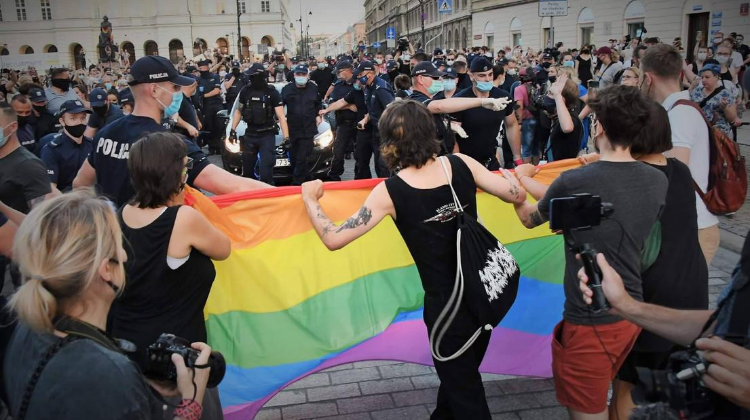
Over the past number of years, LGBTI people have come under increasing attack from ruling politicians, religious leaders and other public figures in Poland. This has come in the form of dangerous and false framing of LGBTI people as a threat to children, and as a threat to Christianity.
We have created and will be updating this abbreviated timeline of what’s been happening over the past two years with the rise of official homophobia and transphobia.
European Court rules in favour of the best interest of the child in same-sex custody case
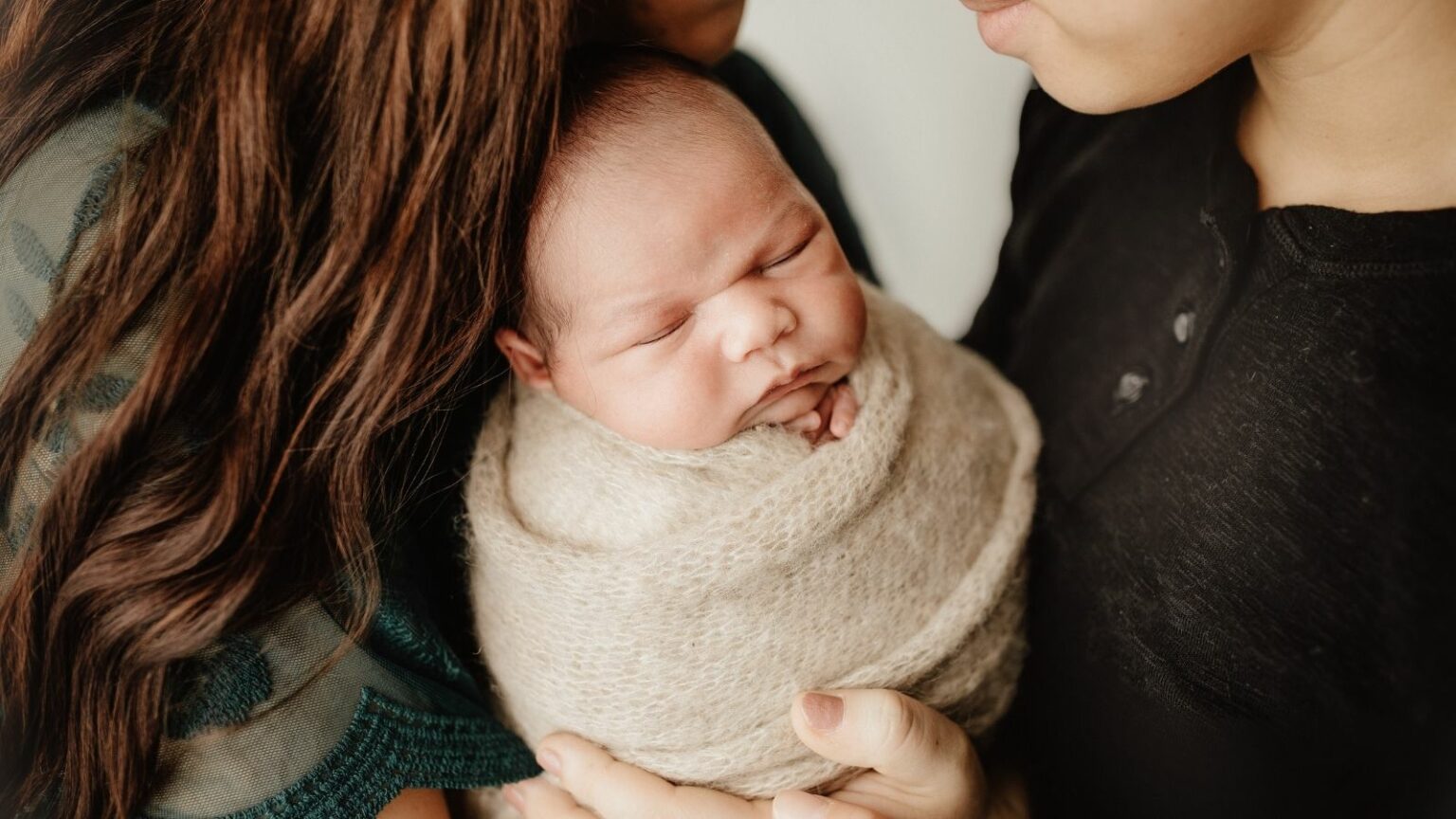
The European Court of Human rights has ruled that the refusing a mother custody of her youngest child on the grounds of her sexual orientation to be discriminatory and a violation of her right to private and family life.
In a judgement released today on the case of X. v Poland, the European Court of Human rights found the refusing a mother custody of her youngest child on the grounds of her sexual orientation as discriminatory and a violation of Article 14 (prohibition of discrimination) in conjunction with Article 8 (right to respect for private and family life) of the applicant.
The case concerned custody arrangements of applicant’s youngest child following her divorce. The main consideration of the courts was that the applicant, the mother of the child, was in a relationship with another woman. She alleged that the courts had acted in her former husband’s favour because of her same-sex relationship.
The Court found that there was “a difference in treatment between the applicant and any other parent wishing to have full custody of his or her child”. Moreover, the Court considered that the discriminatory reference to the importance of a male role model for the boy’s upbringing, which was one of the decisive factors in the dismissal of the applicant’s requests for custody, had outweighed the other arguments: child’s young age, strong bond with the applicant and wellbeing while living with his mother. This reliance on the male role model was discriminatory.
Taking into account that throughout court proceedings, applicant’s sexual orientation and relationship with another woman had been repeatedly referred to as a ground for refusal, the Court concluded that, in “refusing to grant the applicant full parental rights and custody rights in respect of [the youngest child], the domestic authorities made a distinction based solely or decisively on considerations regarding her sexual orientation, a distinction which is not acceptable under the Convention.”
ILGA-Europe had intervened in this case jointly with the International Court of Justice (ICJ), the International Federation for Human Rights (FIDH) and Network of European LGBTIQ* Families (NELFA).
According to Arpi Avetisyan, ILGA-Europe’s Head of Litigation, “Today’s judgment confirms the rights of LGBTI parents to their children on an equal footing as everyone else. The best interests of children to receive parental love and be cared for should prevail in custody considerations, irrespective of parents’ sexual orientation.”
The applicant was awarded EUR 10,000 in respect of non-pecuniary damage.